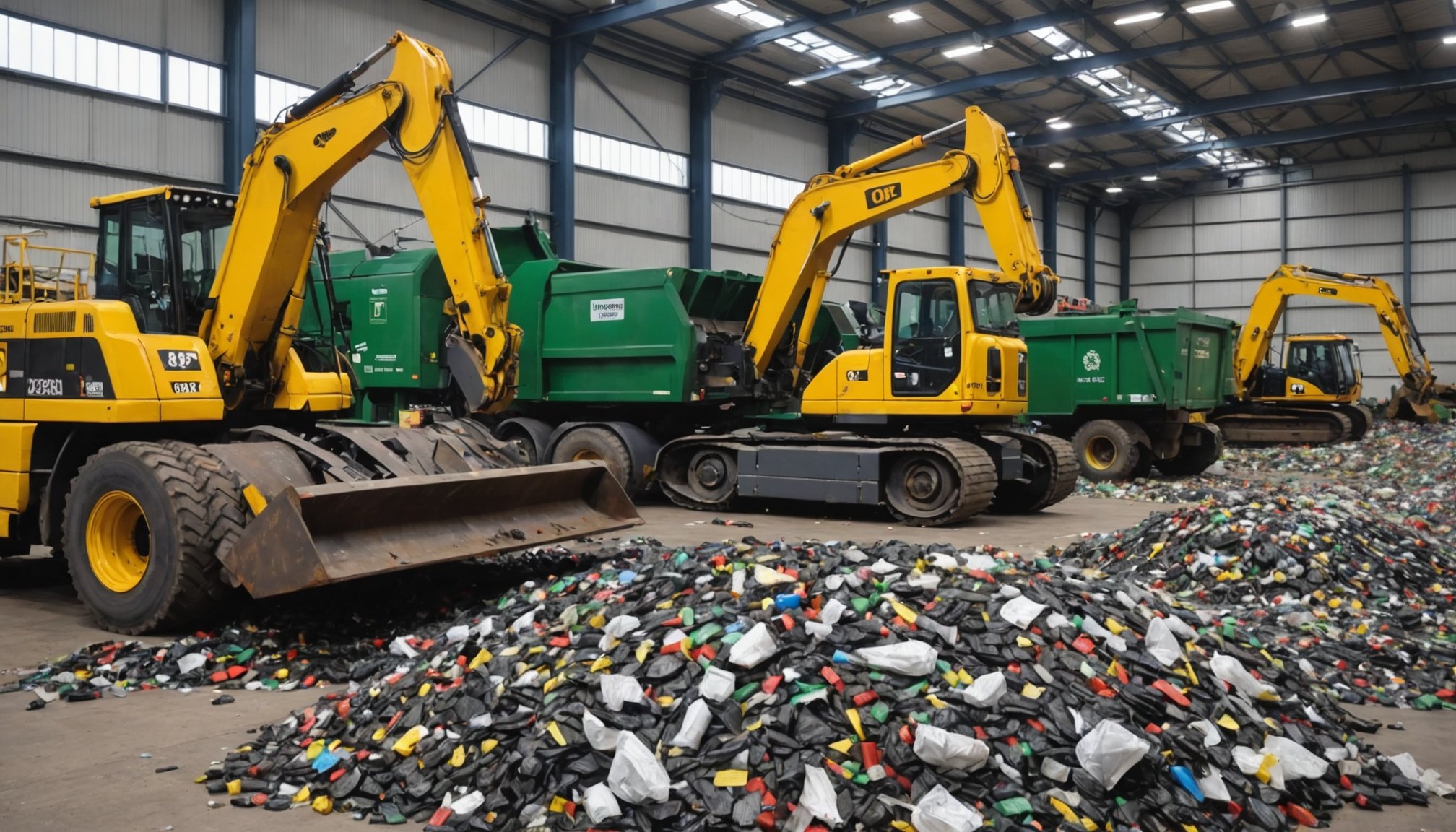Legal and Regulatory Requirements
Navigating waste management regulations in the UK manufacturing sector can be complex. Environmental regulations impose numerous obligations on manufacturers. Compliance is crucial, not just as a legal necessity but also to prevent potential hefty penalties. Understanding the key legislation is essential for any manufacturing entity looking to align with UK waste law.
In the UK, the cornerstone legislation includes the Environmental Protection Act 1990, which outlines the legal compliance for waste disposal, and the Waste Framework Directive, which aims to protect the environment and human health by preventing harmful effects of waste generation. Manufacturers must adhere to these requirements to ensure they minimise their environmental impact.
In parallel : Improving hse compliance across multi-site operations
Failing to comply with UK waste laws can lead to severe consequences, including fines and damage to business reputation. Notorious violations often lead to extensive case studies, serving as cautionary tales for the industry.
Manufacturers must conduct regular audits and reviews to ensure ongoing adherence to the regulations. By understanding and fulfilling their legal requirements, manufacturing companies can safeguard themselves against penalties while contributing to a more sustainable environment. Regular training and updates on regulation changes can support businesses in staying compliant.
Also to see : Harnessing Technology: Revolutionizing Client Services for Financial Advisors in the UK
Overview of Waste Management in the UK Manufacturing Sector
Waste management is an integral part of the UK manufacturing industry’s sustainability efforts. This complex sector is constantly evolving, reflecting the growing emphasis on environmental impact and manufacturing sustainability.
The current practices in waste management highlight a commitment to reducing waste generation and improving recycling techniques. UK manufacturers are increasingly adopting sustainable practices aimed at minimising environmental impact. These practices are not only critical for compliance with waste management UK regulations but also align with broader corporate sustainability goals.
Moreover, the importance of sustainability in waste management cannot be overstated. Sustainable practices help to reduce costs and enhance brand reputation. Implementing these strategies contributes to a circular economy, where waste is not just disposed of, but repurposed and reused effectively.
Although compliance with legal requirements and regulations is mandatory, UK manufacturers are encouraged to exceed these requirements. By doing more than the bare minimum, companies can position themselves as leaders in sustainability. This proactive approach not only mitigates legal risks but also supports manufacturing sustainability by driving innovation and efficiency in waste management processes.
Steps for Developing an Effective Waste Management Plan
Crafting an efficient Waste Management Plan involves meticulous strategic development. The first critical step is assessing current waste generation and management practices. By understanding existing operations, manufacturers can identify inefficiencies and areas for improvement.
Setting clear sustainability goals and objectives follows this assessment. These goals should align with both legal requirements and broader manufacturing sustainability objectives. They act as a roadmap, guiding the company towards reduced environmental impact and compliance with Waste Management UK standards.
Next, identifying effective waste reduction techniques and practices is crucial. Strategies may include process optimisation, material substitution, or technological innovations that reduce waste at the source. Importantly, prioritising waste hierarchy principles aids in focusing on prevention, followed by reuse and recycling.
Integral to these steps is stakeholder engagement. Involving employees and management ensures that the entire organisation supports the initiatives. Communicating the benefits, such as cost savings and enhanced brand reputation, fosters a company-wide commitment to sustainable practices. Regular reviews and updates to the Waste Management Plan further ensure it remains effective and aligned with evolving industry standards.
Best Practices for Sustainable Waste Management
Implementing best practices in waste management is pivotal for manufacturers aiming for sustainability. These practices focus on waste minimization, promoting a circular economy, and fostering environmental consciousness.
Waste Prevention Strategies
To reduce waste effectively, manufacturers should prioritise waste prevention. This can be achieved by optimising production processes, improving material efficiency, and enhancing product design. Preventive strategies help companies lower waste at the source, ultimately reducing costs and environmental impact.
Recycling and Reuse Practices
Recycling and reuse are crucial components. Companies should integrate advanced recycling techniques and promote the reuse of materials within their production cycles. By doing so, they not only comply with regulations but also contribute to a circular economy, where resources are continually repurposed.
Educating Employees and Stakeholders
Education plays a vital role in sustaining waste management efforts. Encouraging a culture of sustainability through training and resources ensures employees are equipped to implement these strategies effectively. Engaging stakeholders by highlighting the benefits of sustainability fosters support and accountability, driving the company’s commitment to a more sustainable future.
Benefits of Implementing a Sustainable Waste Management Plan
Implementing a sustainable waste management plan offers a wealth of advantages. Financial savings are one of the key benefits. By reducing waste generation, manufacturers can significantly lower disposal costs and material expenses. This efficiency not only enhances the bottom line but supports manufacturing sustainability.
Alongside cost reduction, companies often witness an improved brand image. In today’s environmentally conscious market, consumers tend to favour brands committed to sustainability. This commitment can foster enhanced customer loyalty, providing a competitive edge.
Moreover, the long-term environmental benefits are considerable. A thorough waste management plan contributes to reduced environmental impact by promoting practices that minimise waste at the source. Instead of merely discarding waste, materials are recycled or repurposed, supporting a circular economy.
Recognition and compliance with Waste Management UK standards build trust with stakeholders. Demonstrating adherence to regulations not only avoids penalties but establishes a company as a responsible corporate entity.
Ultimately, embracing sustainable waste management enables manufacturers to balance economic performance with environmental stewardship, facilitating a more sustainable industry future. These efforts encourage innovation, efficiency, and a commitment to preserving resources for generations to come.
Tools and Metrics for Measuring Waste Management Effectiveness
In the UK manufacturing sector, effectively monitoring waste management is pivotal to achieving sustainability goals. Waste tracking tools are indispensable, offering real-time insights into waste generation and disposal patterns. These tools not only help in identifying inefficiencies but also enable manufacturers to implement corrective actions swiftly. By leveraging digital tracking systems, companies can gain a detailed understanding of their waste streams, which is essential for optimising waste management practices.
To evaluate the success of these practices, setting clear key performance indicators (KPIs) is crucial. Typical KPIs might include waste diversion rates, cost savings due to waste reduction, or increases in recycling efficiency. Regularly reviewing these metrics allows manufacturers to measure their progress towards manufacturing sustainability and refine their strategies, ensuring they continue to minimise their environmental impact.
Case studies from various industries showcase the effective application of metrics and tools in enhancing waste management. These instances illustrate how methodical tracking and evaluation can lead to substantial environmental benefits and cost savings. By adopting these practices, manufacturers not only comply with Waste Management UK standards but also bolster their reputation as sustainable entities.
Resources for Further Consultation and Support
Sourcing support networks and resources is essential for manufacturers striving for sustainable waste management. There are several industry associations dedicated to providing guidance and support in this area. Engaging with these associations can offer valuable insights and assistance in understanding and implementing best practices.
Training programs and workshops are pivotal in equipping staff with the necessary skills and knowledge to effectively manage waste. These educational opportunities not only enhance employee competency but also foster a company-wide culture of sustainability. Ongoing training ensures teams stay updated with the latest innovations and regulations in waste management.
For manufacturers looking to delve deeper into these practices, a wealth of online resources is available. Many sites offer best practice publications, toolkit downloads, and case studies that serve as practical examples. These resources allow companies to benchmark their strategies against industry leaders and adopt proven methodologies.
Notable associations such as the Chartered Institution of Wastes Management (CIWM) provide specialised consultation and networking opportunities. By leveraging these resources, manufacturers can stay ahead in implementing effective waste management strategies, ultimately supporting both environmental impact reduction and manufacturing sustainability.











